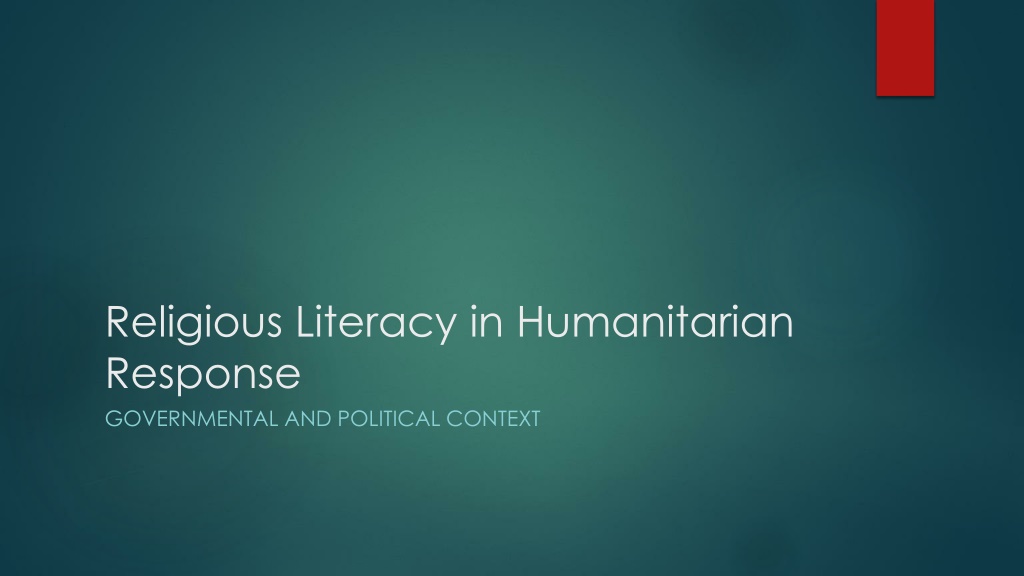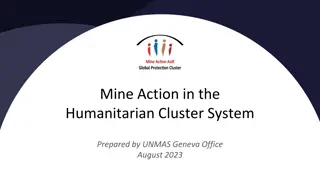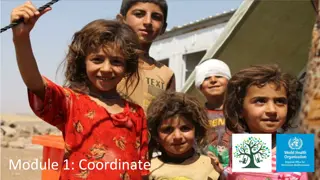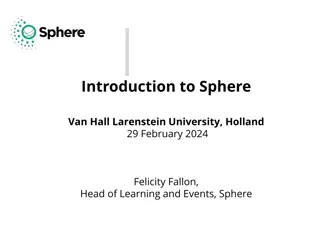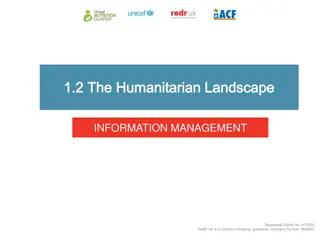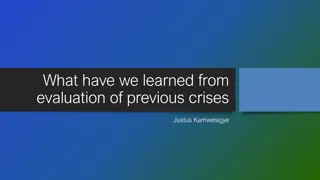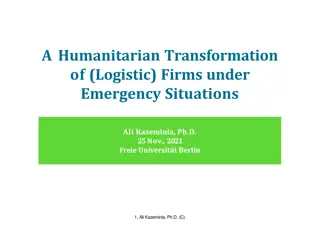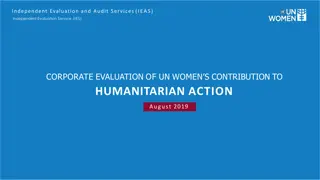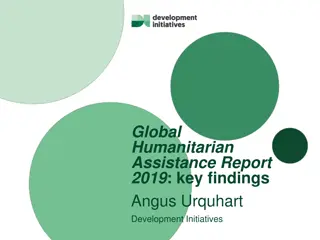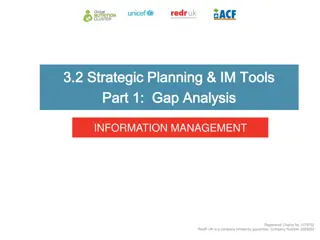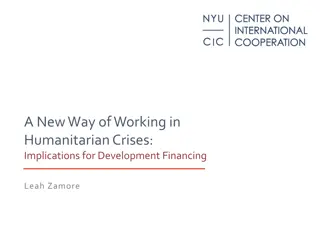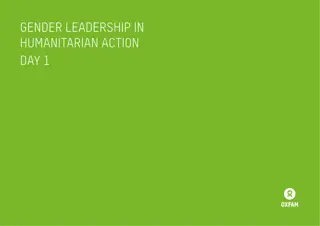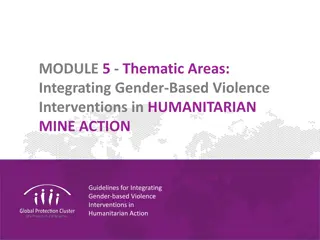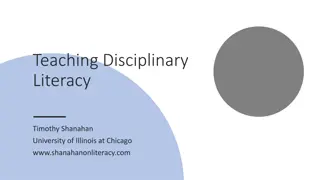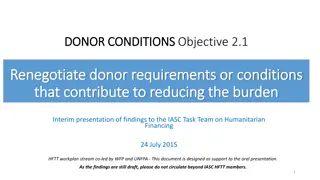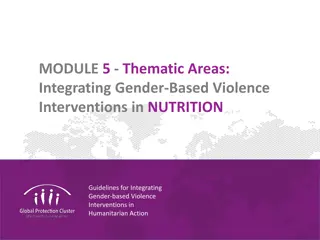Challenges of Religious Literacy in Humanitarian Response within Governmental and Political Context
Challenges arise in humanitarian response within governmental and political contexts due to secular approaches in religious societies. Issues include discriminatory practices against local faith-based organizations (FBOs), unhelpful gender dynamics, harmful social practices, and simplistic charity models. Furthermore, there is a lack of accountability in FBO governance, affecting their integration into humanitarian efforts.
Download Presentation

Please find below an Image/Link to download the presentation.
The content on the website is provided AS IS for your information and personal use only. It may not be sold, licensed, or shared on other websites without obtaining consent from the author. Download presentation by click this link. If you encounter any issues during the download, it is possible that the publisher has removed the file from their server.
E N D
Presentation Transcript
Religious Literacy in Humanitarian Response GOVERNMENTAL AND POLITICAL CONTEXT
Challenges in the context of secular approaches in religious societies Humanitarian ethics relating to impartiality, proselytism and neutrality often discriminate against local FBO inclusion This is also linked to the related problems of factionalism and politicisation Secular agencies often contend there are unhelpful gender power dynamics in FBO groups that may exclude participation by women and girls Faith groups are sometimes seen as contributing to harmful social practices FGM, EFM, DV, stigmatisation of groups Charity models within some FBOs are sometimes simplistic and based on superficial analysis FBO Governance does not always offer adequate levels of accountability to local people
Force Field Analysis Local Faith Community Engagement Disengaged & Alenated from Humanitarian sector Simplistic charity model Lack of Compliance Proselytisation Clash with secular human rights values Factionalism Politicisation Lack of capacity/standards Cultural /wrong interpretations of faith Poor governance/accountability Essential as moral/ethical reference points Strengthen resilience Leads to local capacity being built leads to integration and development of discourse local civil society is inclusive of FBOs Support base for sustainability/additionality Often more genuinely locally owned than NGOs Reach and cross border networks Influence Trust
The problem manifests as Parallel aid communities and resources not being joined up Alienated and misinformed parallel discourse Distrust in some cases Faith-Insensitive programming A failure to exploit an integrated and inclusive discourse/practice that enables real change A failure to appreciate the added value of FBO approaches A community based model of support that provides social capital - and companionship/accompaniment Access to traditional means of social finance and support The value of inclusive approaches to influencing & social change tackling harmful practices, xenophobia The advocacy influence of FBOs at a local level with Govt The mediating role of faith leaders in peace-building
Required religious literacy guidelines Inclusion guidelines project cycle Explore and challenge unconscious and inherent bias related to working with faith actors may include essential faith teaching literacy understanding related values to secular concepts gender equality, human rights, protection, impartiality, neutrality Identify benefits of engaging faith actors in humanitarian programming Describe risk mitigation strategies to use when working with faith actors Carry out faith actor mapping exercises Plan the application of partnership approaches for different faith actors in different humanitarian contexts
Two-way literacy for FBO aid actors Ensure staff and volunteers understand and respect both faith-based social teaching as well as secular teaching related to human rights and humanitarian ethics Ensure standard operating procedures are inclusive and equitable to all groups with conscious & unconscious bias addressed Understand the benfits and relevance of the secular approach and how it can enable iclusion
